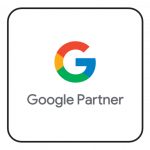It’s heartening to see that many entrepreneurs are now taking to the Internet. They understand that establishing themselves online is crucial to the success of their business, and are far more open to the idea of solidifying that presence through various techniques, including SEO.
The world of SEO is a challenging one. It is, after all, a relatively young and continuously evolving field. There’s so much to learn about it, especially for entrepreneurs who have just learned about its existence recently. To help them out, here are some things to know about SEO for entrepreneurs who are interested in learning more about it.
What is SEO?
SEO stands for search engine optimisation, and it refers to the various techniques and strategies used to improve a website’s ranking in search engine results pages or SERPs.
The higher a website’s rank in search results, the more visible it becomes for users to click readily. More clicks lead to more significant traffic and greater chances to generate leads and conversions for the business.
How search engines work
Search engines use automated software agents called bots to crawl websites for keywords, backlinks, title tags, meta descriptions, and other SEO signals. These bots will report these signals to their own search engines, which will process it to determine how a page will rank for a specific keyword or key phrase.
Currently, Google, the top search engine, is believed to be ranking sites based on more than 200 ranking factors. For sites to stand a better chance at getting ranked high, they have to comply with ranking factors such as site speed, backlinks, content quality, and mobile-friendliness.
On-Page SEO
Any technique implemented within a website is called on-page optimisation. Creating meta descriptions, title tags, and meta tags are some examples of on-page SEO. The same goes for the proper use and placement of the right keywords and phrases.
Off-page SEO
Off-page SEO is basically link-building, which is done on websites other than one’s own. Posting guest blogs, posting on social media, and claiming listings on business directories are all part of a website’s off-page optimisation efforts.
White hat and black hat SEO
All websites must follow the rules and conditions that search engines have set, and efforts on a webmaster’s part to do so are referred to as white hat SEO. The creation of original, relevant, high-quality content is white hat SEO, and so is boosting page load speed.
Implementing techniques that flout those rules, on the other hand, is black hat SEO. Unethical practices such as keyword stuffing, posting duplicate content, and link-buying are some black hat SEO techniques that can earn a website penalties from the search engines.
Quality content
There was a time when content wasn’t that crucial to getting ranked high on Google. Today, thanks to Google’s massive algorithm updates over the years, websites with quality content are rewarded with high rankings on search results.
As long as the content is original, useful, relevant, and actionable, Google will likely see it as quality content and rank pages appropriately. Among the types of content that websites should feature include how-to articles, authoritative blog posts, list posts, infographics, and videos.
Mobile-first indexing
Google now bases the rankings and search listings of websites on their mobile versions. With Google implementing mobile-first indexing, it has become imperative for websites to become mobile-friendly. For now, the best way to go mobile-friendly is by going for responsive web design.
SEO is still so young that even people considered experts in it still have so much to learn. Hopefully, the tidbits above can help entrepreneurs get started on their optimisation journey.


